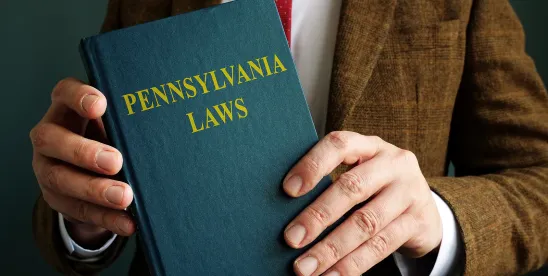On June 27, Pennsylvania enacted Senate Bill 202, which significantly expands the Commonwealth’s Money Transmitter Act (MTA) to include virtual currency transmission. Under the amended law, transmitting virtual currency is regulated in the same manner as traditional money transmission, which includes the obtainment of a license. The law will take effect 60 days from enactment.
Key amendments to the MTA include:
- Definition of virtual currency. “Virtual currency” is defined as a digital representation of value that functions as a medium of exchange, unit of account, or store of value. Most loyalty rewards and in-game tokens are excluded.
- Licensing requirement. A license is now required to transmit virtual currency on behalf of an individual for a fee or other consideration. As a result, virtual currency transmitters must comply with annual reporting, agent registration, and federal anti–money laundering requirements.
- Treatment of self-hosted wallets. The law exempts individuals who custody their own digital assets. However, those using self-hosted wallets to transmit virtual currency on behalf of others for compensation are subject to licensure.
- B2B transmission exemption. Business-to-business transmissions of virtual currency in connection with commercial contracts are exempt from the MTA.
Putting It Into Practice: With this legislation, Pennsylvania now joins 26 other states in requiring licensure for virtual currency transmission. The short 60-day compliance window highlights the urgency with which both federal and state regulators are moving to bring greater clarity to the crypto space (previously discussed here, here, here, and here). Crypto exchanges, wallet providers, and other fintech companies serving Pennsylvania residents should evaluate whether their activities fall within the scope of the amended law and ensure they are prepared to meet the applicable licensing, financial, and compliance requirements.
Listen to this article
Sammy Abdulrahim contributed to this article



 />i
/>i

